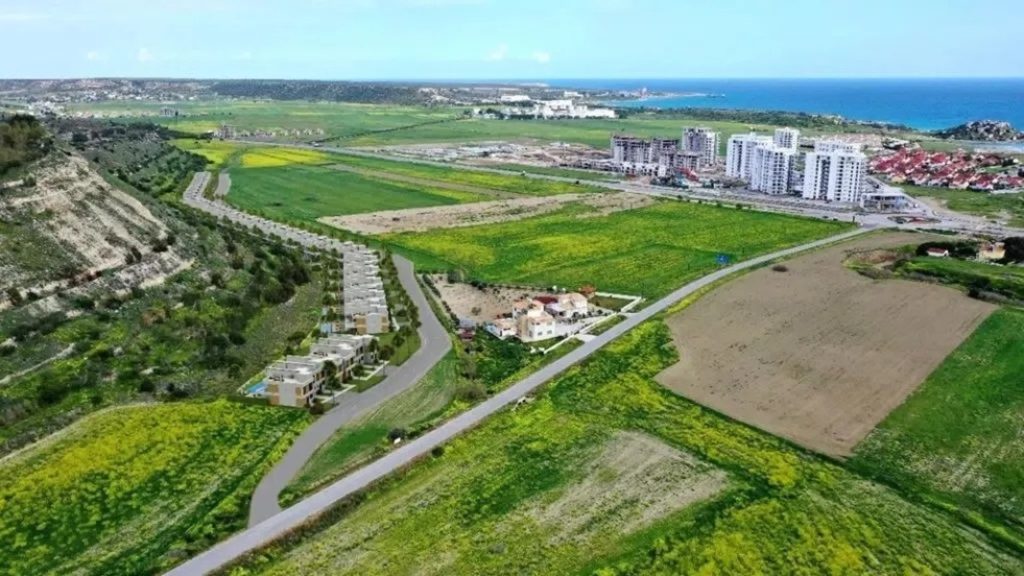Foreign property investments are surging within the occupied territories, with the Trikomo region at the epicentre of this trend, informs in-cyprus.
Amidst a backdrop of anxiety over the selling of properties belonging to displaced Greek Cypriots, a multitude of foreign investors are eagerly diving into the market in the occupied north.
These include individuals hailing from nations with which the Republic of Cyprus has established cooperation agreements. Despite stern warnings issued by Nicosia, it appears that these admonitions have largely fallen on deaf ears.
A recent report by Yeni Duzen sheds light on the situation, suggesting that around a quarter of the land in Trikomo is now owned by foreign investors.
Real estate dynamics are evolving swiftly, with studio apartment prices in the region kicking off at a range between £90,000 and £120,000. Meanwhile, two-bedroom apartment prices oscillate between £120,000 and £160,000. For those seeking a three-bedroom residence, the price spectrum extends from £160,000 to £250,000. Prospective homeowners eyeing detached houses should be prepared to shell out at least £350,000.
However, these figures, while enticing to some, pose an insurmountable obstacle for locals, especially considering the prevailing economic climate and those receiving incomes in the devalued Turkish Lira.
Industry insiders have raised concerns over the mushrooming influence of foreign investors, asserting that approximately 20-25% of the real estate market in the Trikomo region now dances to their tune.
Criticisms are mounting over the unregulated property sales and construction activities occurring within the region. Notably, investors hailing from nations such as Israel, Germany, Ukraine, Iran, Kazakhstan, and Russia have all thrown their hats into the ring.
Furthermore, significant foreign funds have been pouring into high-profile areas like Karpasia, Orga, and Saint Ambrose.
Mustafa Tan, director of Cyprus Loft Estate, a prominent local real estate agency, voiced his concerns: “Cypriots are finding themselves increasingly unable to secure homes. Foreigners have swiftly established a robust presence across various sectors, often engaging in transactions exclusively among themselves. If this trend persists, it won’t be long before we, the natives, feel like strangers in our own land.”
Tan urgently stressed the need for swift government intervention, particularly in controlling the resale of previously owned homes.
Hasan Efe, a director at Emlak Dünyası Iskele, echoed these sentiments: “While locals have been restricted to using the land solely for agricultural purposes under state regulations for the past three decades, valuing the land at a modest £10,000, foreign investors are now shelling out a staggering £100,000 for the very same plot. This stark dichotomy has left many locals with limited economic power, struggling to make the most of their own lands for years.”
The unchecked rise of foreign investments is igniting debates over land ownership, economic disparities, and the broader socio-economic landscape in the occupied northern part of Cyprus.

